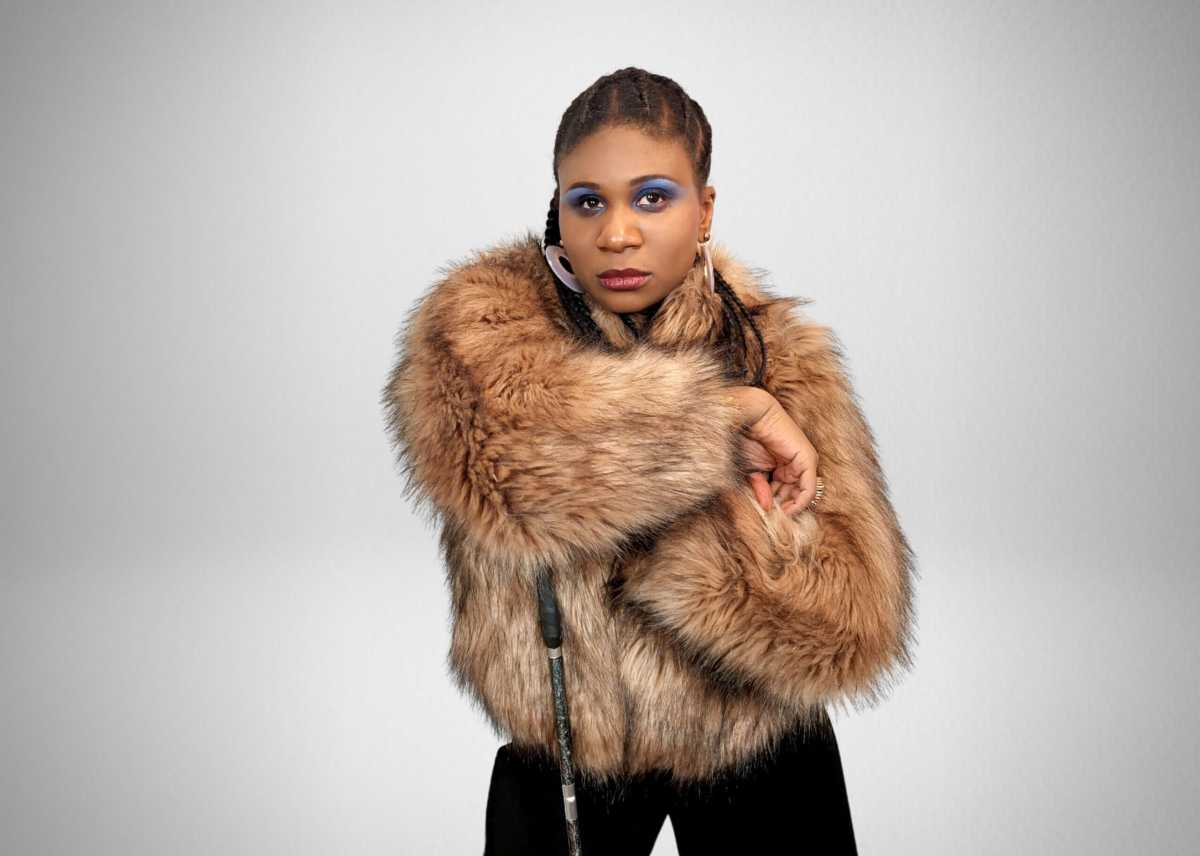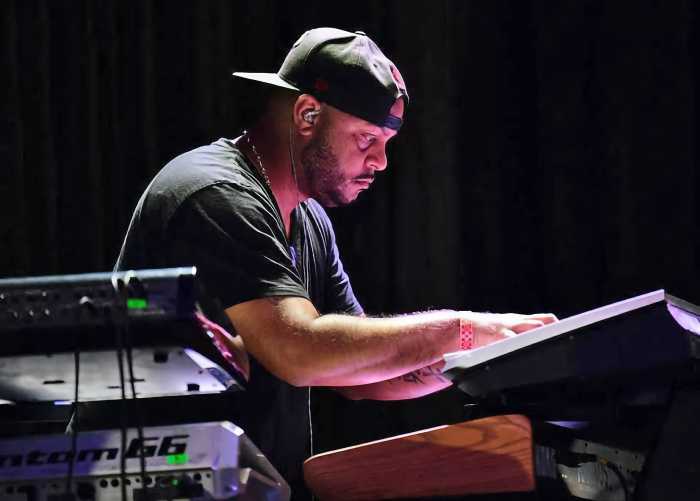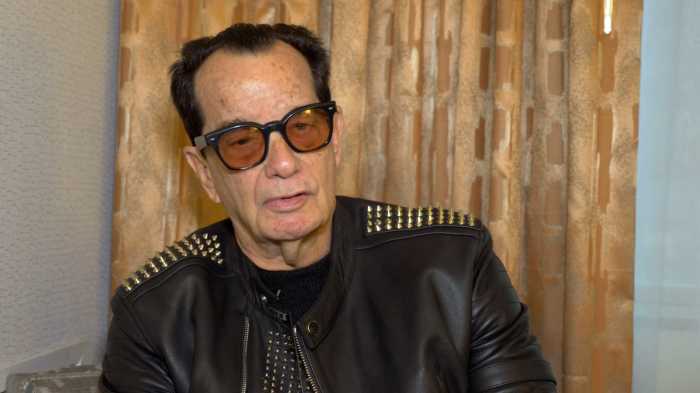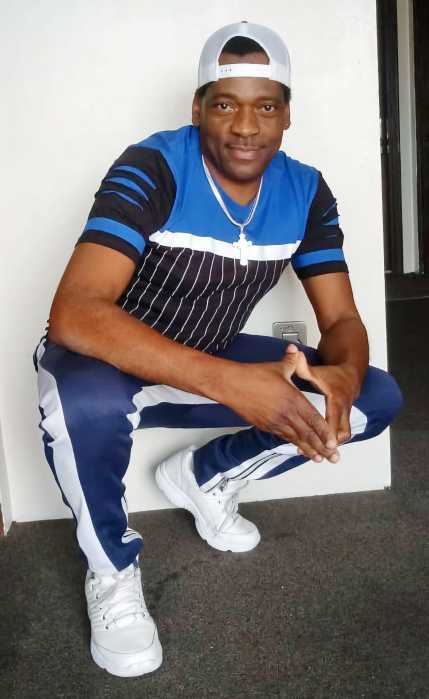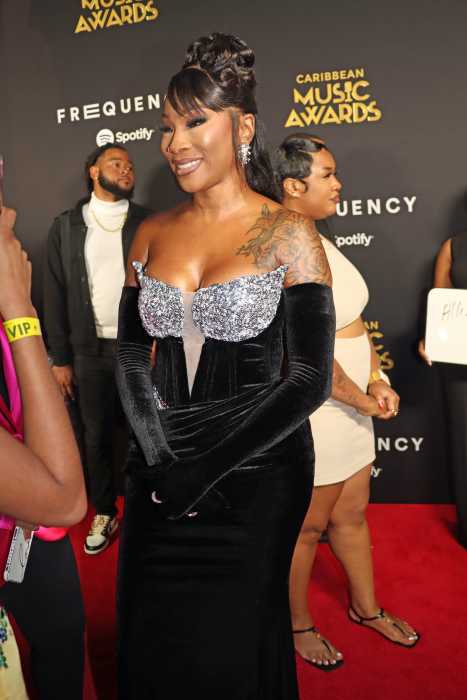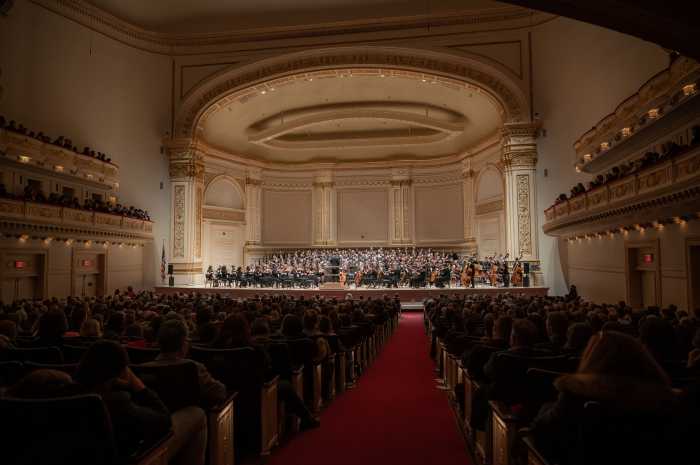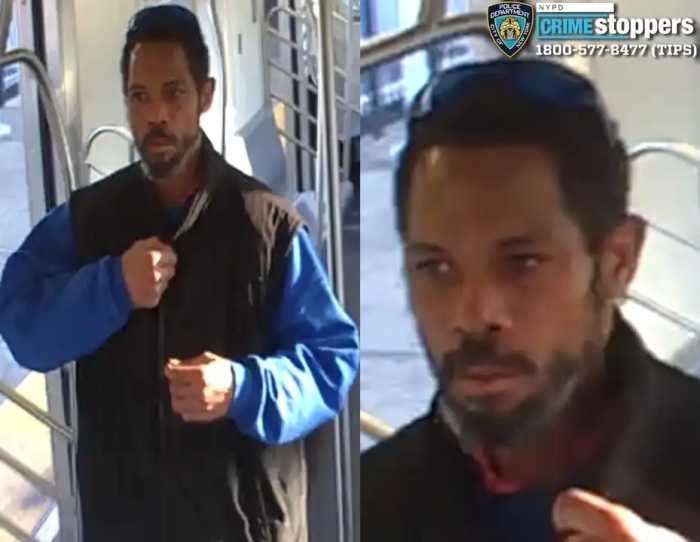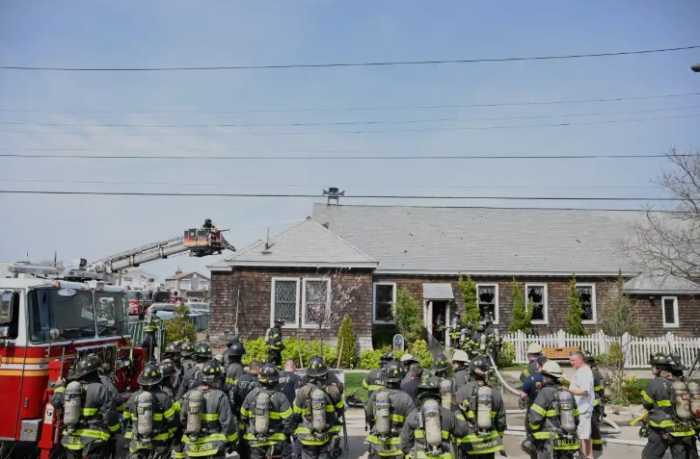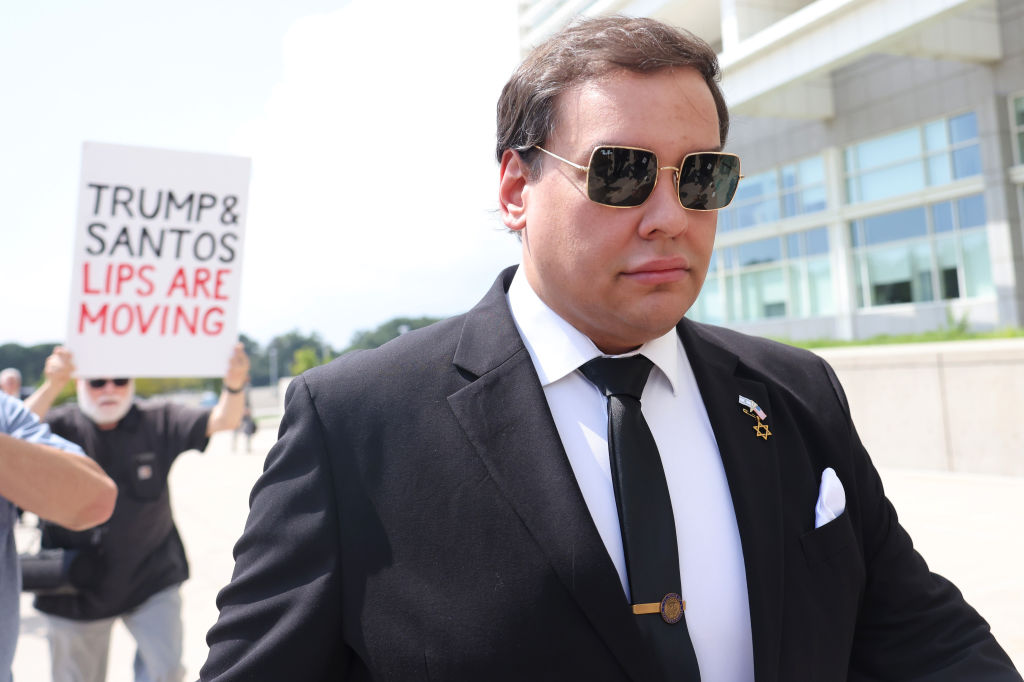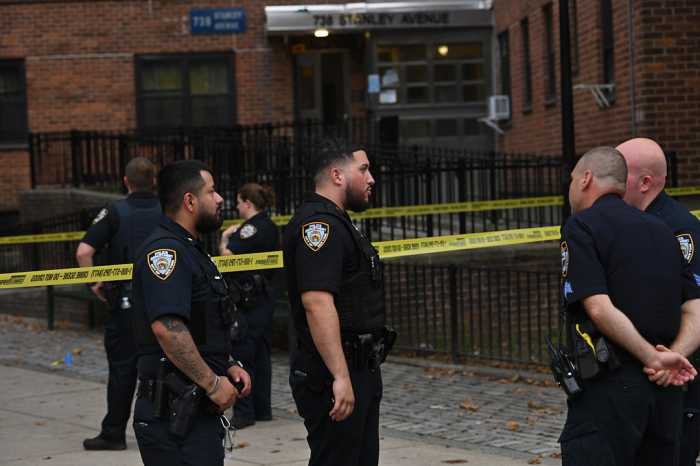Lachi is a black woman who was born legally blind. However, it wasn’t until a couple years ago, when she was told she would start to lose her vision completely until total blindness, that she slowly started to feel more comfortable with the diagnosis.
“It’s been a game-changer. In a good way,” she said, giving her the confidence to “just do all the things I’ve always wanted to do.”
“I started using a cane regularly in 2021, and it has upped my fashion game exponentially, as I now glam them up to match my outfits, and it’s become a whole internet vibe,” she added.
She currently lives in Manhattan. She sees New York City as pretty accessible for the blind, and it continues to be a great place to pursue music. Most importantly, for her, NYC “is the perfect spot for the counterculture outcast to feel they belong without judgment.”
In the past, she would do whatever she could to hide her blindness out of fear of being seen as non-competitive or making others uncomfortable.
This changed after she was invited to join the GRAMMYs New York Chapter Advocacy committee, where she found herself for the first time in a room with true industry leaders.
“I asked if the folks in the room, at their various organizations, were doing anything about disability. This eventually led me to putting together a national talk with the Recording Academy on the state of disability in the music industry, opposite Valeisha Butterfield Jones, Seida Garret and other creators with disabilities,” she continued.
As a result of this panel, she began getting DMs and calls asking if she was going to lead the movement bringing Disability Culture to mainstream discussion in the music industry.
Thus Lachi founded the organization, Recording Artists and Music Professionals with Disabilities (RAMPD). It is a platform connecting the music, performance, events and audio technology industry to a global network of recording artists and music professionals with disabilities.
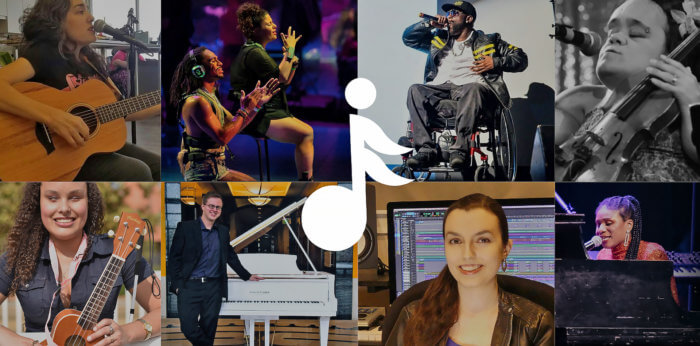
It aims to amplify Disability Culture, promote inclusion, visibility and representation, and advocate for accessibility in the music industry by bridging the gap between the decision makers and disabled music talent. Ultimately, it looks to infiltrate pop-culture with Disability culture narratives, as the best way to amplify culture is through music.
Lachi placed emphasis on the fact that, “Leadership by the most marginalized among us, lifts all ships. One non-disabled person shouldn’t be making decisions for disabled folks. We can make our own decisions, lead our own organizations and tell our own stories.”
Thus, the executive committee at RAMPD comprises solely of music creators or industry professionals with a disability, with a focus on qualified folks intersectioned with an underrepresented race, gender-identity, sexual profession, etc.
Lachi states that the biggest success story so far with running the organization was in April of this year, when it “worked with the Recording Academy to make the 64th Grammys accessible, with a visible stage ramp, American sign language on the red carpet, captioning, and audio description for home viewers.”
The latest work of the organization includes: partnering with Netflix to put together a program to help develop Disabled film and TV songwriters and composers; partnering with United Masters to create RAMPD Records, which put out its first track “On God ” by RAMPD founding member, Tapwaterz, on December 2.
Being professional and competitive, the organization avoids the traditional stereotype of being seen as “inspirational” for doing standard daily things. It consists of creators and industry workers who are already established and can speak to Disability Culture, but also show off accreditations at the same time.
According to Lachi, “RAMPD is building names, leaders, and creating space for disabled creators’ intersection with all forms of disability, and working with other strong organizations and firms within the music and disability communities in order to break down the silos built by scarcity-mindset, and begin placing the building blocks to collective liberation.”
RAMPD has worked with the GRAMMYs, Netflix and it is working with a dozen other notable and national firms to bring visibility and opportunity to accessibility and inclusion in a global way, capturing the attention of NYTimes, Billboard, Forbes and the Hollywood Reporter.
Lachi also emphasized that RAMPD is not hoping to attract folks who feel sorry for disabled people. Instead, she said it should come from folks who want to see professional music workers infiltrate the music industry, who want to see disability narratives enter the pop-culture atmosphere.
To companies who want to make their products, services and events accessible, you should:
“First ask, then listen. Consult with the disability community directly on how your platform, program or venue can be more accessible and inclusive of people, users, creators and professionals with disabilities, and pay disabled folks for their valuable time, expertise and insight into their lived experience,” Lachi said.
Companies who are interested can find information on collaborating with RAMPD here: https://www.rampd.org/partner.html.
To stay updated on the work of RAMPD, those interested can join the email list here: https://rampd.us6.list-manage.com/subscribe?u=bc1ab631531a16f2868b379b0&id=aeb1e30286. To support its work, those interested can donate to RAMPD here: https://www.paypal.com/donate/?hosted_button_id=EG57243D68KZ6


